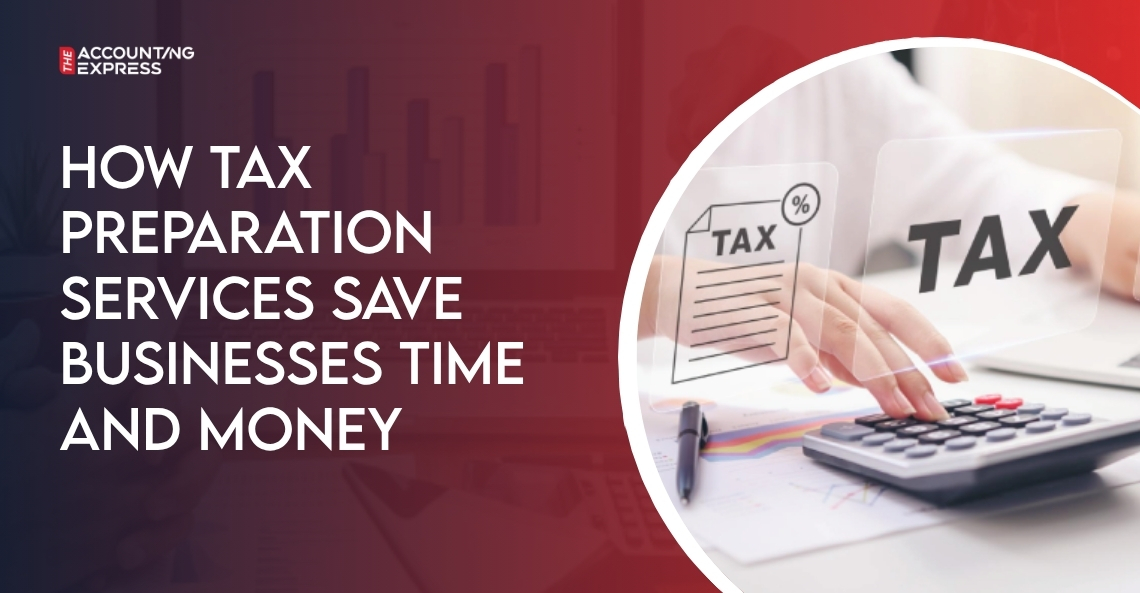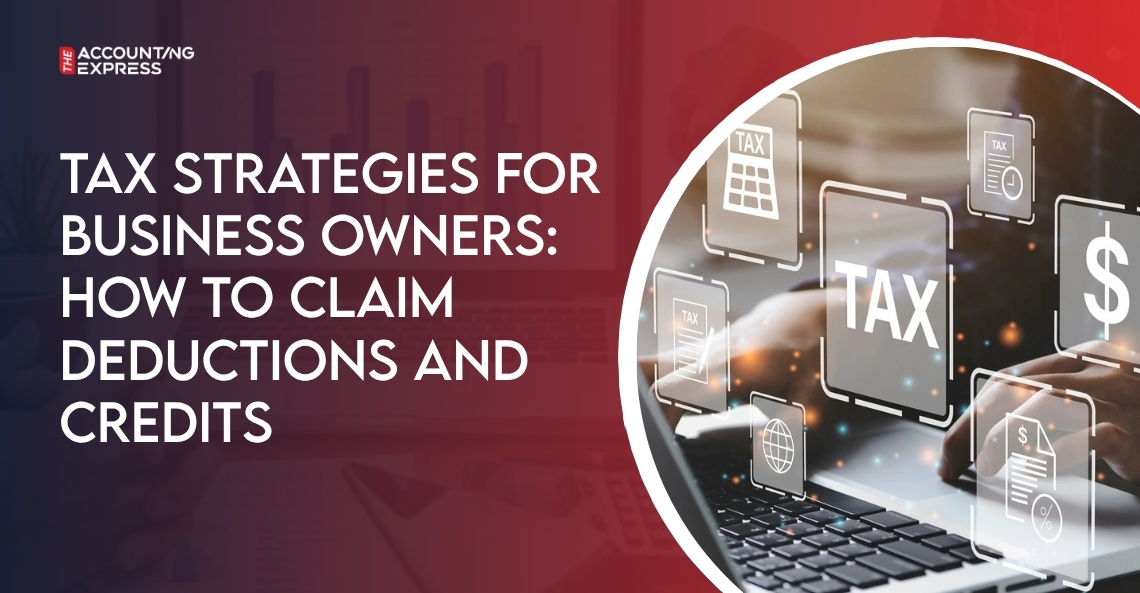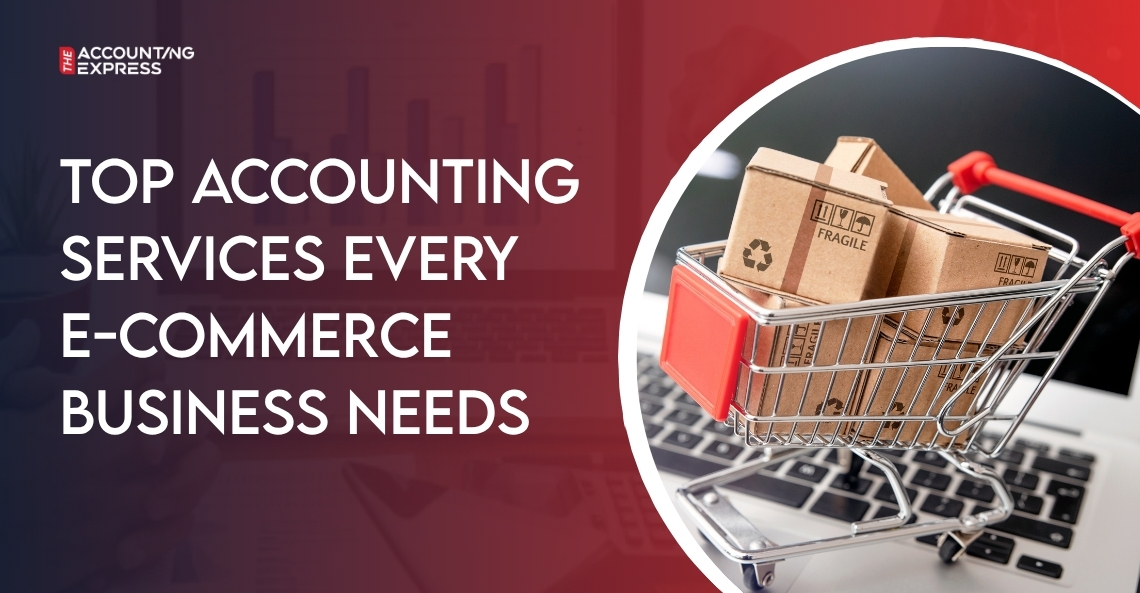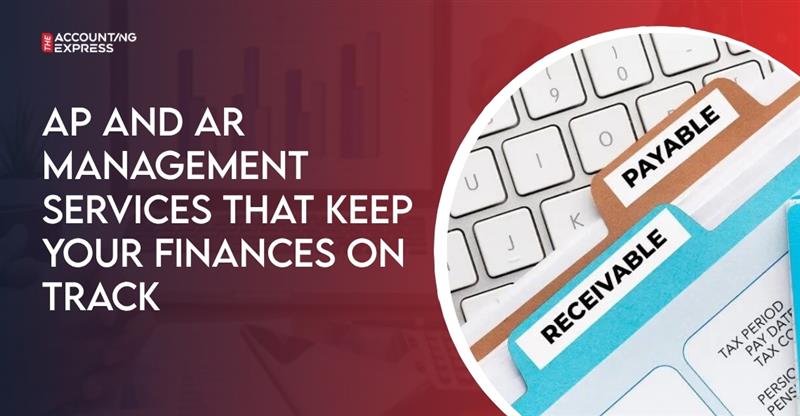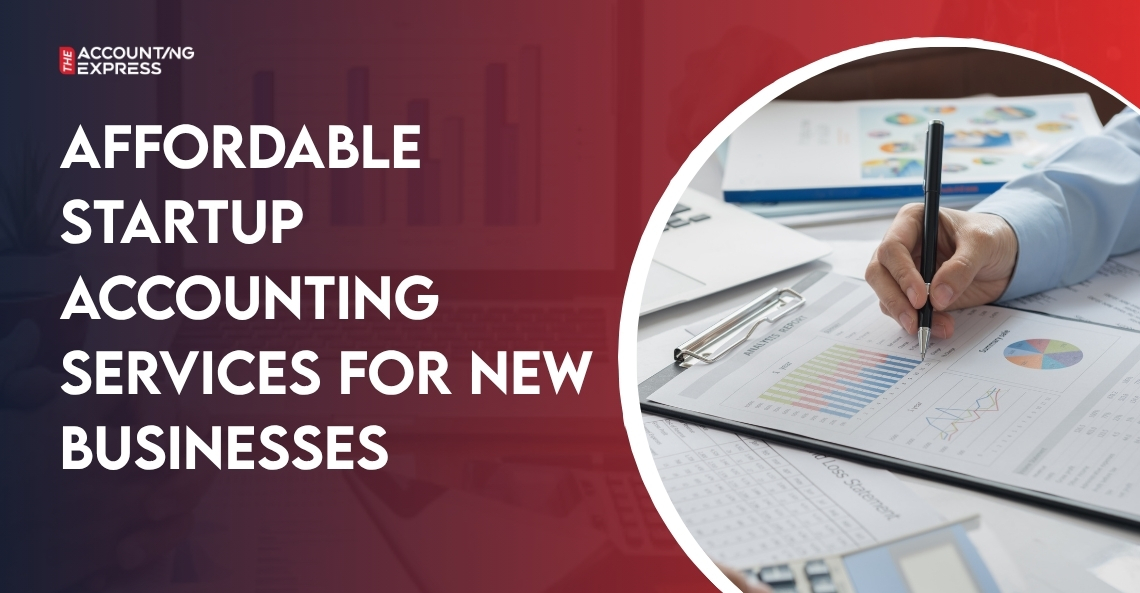
Affordable Startup Accounting Services for New Businesses
According to CB Insights, 38% of startups fail. Why? because they run out of money. The truth is, success isn’t just about making money. But it’s about managing it wisely. That’s where affordable startup accounting services step in. They help new businesses spend smarter, not harder. As one expert puts it, “Accounting isn’t just about numbers. Instead it’s about making sure your story adds up.” In this guide, you’ll see how smart accounting keeps startups strong, compliant, and ready to grow.
What Are Startup Accounting Services?
Let’s keep it simple. Startup accounting services are basically the financial backbone your new business didn’t know it needed. When you’re building a company, you’ve got a million things to manage — product, marketing, sales — and finances often get pushed to the back seat. That’s where professional accounting services come in. They help you track every dollar, so your decisions are based on facts, not guesses.
A good startup accounting package usually includes everything. For instance, bookkeeping and payroll, tax preparation, financial reporting, and budget forecasting. So, imagine it as your all-in-one financial toolkit. Each piece works together to make sure your cash flow stays steady. And that your taxes stay clean. Plus, it keeps your financial goals stay realistic.
And here’s the thing — the best accountants for startups don’t just crunch numbers. They translate them into strategy. They tell you where your business stands, what’s working, and where you might be losing money without realizing it. That’s why businesses that track their finances monthly grow 30% faster than those that don’t, according to Small Business Trends.
So, while accounting might sound technical, it’s actually one of the smartest investments your startup can make. Because when your numbers make sense, your business decisions do too.
Why Startups Need Specialized Accounting
Startups live in a different world — fast, unpredictable, and full of risks. One month, you’re raising funds; the next, you’re figuring out how to manage cash flow with five new clients and three new hires. That’s exactly why you need specialized startup accounting services, not just a freelancer juggling spreadsheets on Excel.
Unlike traditional businesses, startups deal with constant change. there’s rapid scaling, variable revenue streams, and investor expectations.
A general accountant? They might manage your books. But startup accounting experts? They get growth patterns, funding rounds, and burn rates. So, they know how to build systems that grow with you. Not against you.
For example, imagine a tech startup that raised seed funding. But overspent on marketing because no one tracked expenses correctly. Within months, their budget fell apart. That’s what poor accounting looks like in real life. It’s fast money lost even faster.
As one startup consultant wisely said, “Every startup has a dream. Accounting keeps that dream funded.” According to Deloitte, outsourcing your accounting can reduce operational costs by up to 40%, giving founders more time and money to focus on what truly matters — innovation.
In short, specialized accounting isn’t a luxury. It’s a necessity that keeps your business grounded, strategic, and financially sound from day one.
The Anatomy of Affordable Startup Accounting Packages
Let’s break it down. Affordable startup accounting packages aren’t about cutting corners — they’re about paying for what truly matters. The best ones are designed to fit your stage of growth, offering flexibility, scalability, and real value for money.
Typically, these packages come in tiers.
1. Basic Package
Perfect for early-stage startups still finding their footing. It usually covers bookkeeping, tax filing, and basic financial reports. Pricing often starts from $300 to $500 per month. But it depends on your business size and transactions.
2. Standard Package
Ideal for growing startups, managing payroll, investors, or multiple revenue streams. It adds advanced reporting, budget forecasting, and compliance support. This can range from $600 to $800 per month.
3. Premium Package
Built for scaling businesses ready for serious growth. This includes CFO-level insights, automation tools, and detailed financial analytics — basically, everything you need minus the six-figure salary.
Now, here’s the key. Affordable doesn’t mean barebones. But it means efficient. You’re investing in precision and time-saving systems instead of paying for unnecessary overhead. As one finance expert put it, “The right accounting package feels like hiring a CFO without the six-figure salary.”
In the end, the best startup accounting services give you clarity and control without draining your budget — the perfect balance between affordability and performance.
How to Choose the Best Accountants for Startups
Choosing the best accountants for startups? Great decision! But it isn’t about hiring the cheapest option. Nor about the one with the fanciest website. It’s about finding a financial partner who gets your startup’s unique rhythm. You know, the chaos, the speed, and the ambition. A good accountant? They will not only balance your books. But also guide your financial decisions, helping your business grow sustainably.
So, how do you actually find the right one? Here’s a clear, step-by-step checklist to help you decide.
1. Check Their Experience with Startups
Startups aren’t like traditional small businesses. They move fast, scale even faster, and often have unconventional revenue models. That’s why you need an accountant who’s worked with early-stage companies before. They’ll understand things like burn rate, investor reporting, and financial forecasting — terms that might make a regular accountant blink twice.
When you’re interviewing potential accounting partners, ask for examples of similar startups they’ve supported. Their track record will tell you everything you need to know about their capability.
2. Ask What Accounting Software They Use
Modern accounting runs on tech, not paper files. Ask your accountant which tools they rely on. QuickBooks? Xero? Or FreshBooks? These are some of the top choices for startups. Cloud-based platforms let you check your financial reports anytime, anywhere.
When your data lives in the cloud, collaboration becomes effortless. You and your accountant can both
- see real-time updates
- track invoices
- and monitor cash flow without sending endless spreadsheets back and forth.
It’s faster, more transparent, and far less stressful.
3. Look for Transparency in Pricing and Deliverables
Hidden costs can drain your budget faster than a bad ad campaign. The best accountants for startups are upfront about their pricing. Whether it’s a flat monthly rate or a tiered startup accounting package, you should know exactly what you’re paying for.
Ask them to walk you through the deliverables — what’s included each month, what’s considered an add-on, and how they handle tax season. A transparent accountant builds trust from day one, which is priceless for a growing business.
4. Ask About Scalability
Startups evolve — your accounting service should too. Today, you might only need bookkeeping and tax filing. But as you grow, you’ll want payroll management, investor reporting, and financial forecasting.
When interviewing accountants? Ask if they can scale their services as your business expands. The right partner will grow with you. Hence, saving you the trouble of switching firms every time you hit a new milestone.
5. Prioritize Communication and Clarity
Let’s be honest — accounting jargon can make your head spin. The right accountant won’t drown you in technical terms. Instead, they’ll explain your financial position in simple language, so you actually understand what’s happening.
As the saying goes, “The best accountants for startups speak business, not balance sheets.” That kind of clarity builds confidence and helps you make informed decisions without second-guessing every number.
When to Hire Startup Accounting Experts (Timing Is Everything)
Here’s the truth — most founders wait too long to hire startup accounting experts. They think they’ll “figure it out later” or that Excel will somehow keep up with their growing business. But by the time you’re missing invoices or losing track of tax deadlines, it’s already costing you more than a professional accountant ever would.
There are a few clear signs it’s time to bring in the experts:
- You’re missing invoices or tax deadlines. When administrative tasks start slipping through the cracks, that’s your first red flag.
- You’ve just raised funding. Once investors are involved, financial accuracy becomes non-negotiable. You need clear reports and accountability.
- You’re spending more time tracking receipts than building your product. If you’re drowning in spreadsheets, your focus is in the wrong place.
- You don’t have a clear idea of your cash flow. Without real numbers, your growth strategy is just guesswork.
As one financial advisor put it, “If you’re Googling ‘How to reconcile accounts,’ it’s already time to hire an expert.”
Beyond saving time, outsourcing your accounting frees up mental energy. You can finally focus on what you do best. Innovating? Building? Or maybe scaling? Meanwhile, your accountant handles the chaos behind the scenes.
So, don’t wait for the stress to pile up. Hiring a professional isn’t just about keeping your books clean. But it’s about keeping your mind clear and your startup on track.
The ROI of Hiring Affordable Accounting Services
Investing in affordable startup accounting services isn’t an expense — it’s a smart move that pays for itself. When your finances are managed by professionals, you’ll see fewer errors, better cash flow, and clearer forecasting. For instance, one startup cut its expenses by 20% within six months after hiring an accounting firm. According to a PwC report, companies that use accounting automation improve accuracy by 95%. That’s real, measurable ROI.
Smart founders know accounting isn’t about spending more — it’s about controlling where every dollar goes. Simply put, good accounting turns chaos into strategy and data into growth.
Common Mistakes Startups Make in Accounting
Every founder makes mistakes — but when it comes to accounting, even small errors can turn into big financial problems. The good news? Most of them are easy to avoid once you know what to look for. Here are the most common pitfalls startups face and how to fix them before they snowball.
1. Mixing Personal and Business Expenses
This one’s classic. Using the same account for both personal and business expenses makes tracking a nightmare. Always open a separate business account from day one. It keeps your records clean and your taxes easier to manage.
2. Ignoring Cash Flow Forecasting
A positive bank balance doesn’t always mean you’re profitable. Without cash flow forecasting, you can’t plan for slow months or unexpected costs. Forecasting helps you stay ready instead of reactive.
3. DIY Bookkeeping Without Oversight
Managing your own books? That might seem smart in the early days, but errors pile up fast. One missing receipt? Or miscalculated expense? That can distort your entire financial picture. Hiring startup accounting experts ensures accuracy from the start.
4. Not Planning for Taxes
Many startups get hit with surprise tax bills simply. Why so? Because they didn’t plan ahead. Setting aside a percentage of every payment for taxes saves you from last-minute panic.
As one financial consultant put it, “Bad accounting doesn’t just lose money — it loses trust.” By avoiding these simple but costly mistakes, you protect both your cash and your credibility.
Ultimately, good accounting isn’t just about compliance. It’s about control. And when your books are right, your business decisions become sharper, faster, and more confident.
Starting a business is exciting. However, staying financially stable is what keeps it alive. Affordable startup accounting services make that possible. By helping you manage cash flow, plan budgets, and stay tax-ready without overspending. Remember, smart accounting isn’t a cost. But it’s a growth strategy.
So, keep this in mind:
- Affordable doesn’t mean cheap. But it means efficient.
- Choose the best accountants for startups who understand your pace and goals.
- Track finances monthly to stay ahead.
- Hire experts early to save time, money, and stress.
Strong accounting today builds sustainable success tomorrow.
Let's Discuss
Recent Blog
- All Posts
- All Blogs



